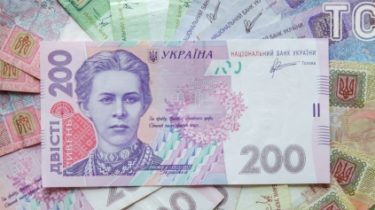Improvement could not see. The NBU left unchanged the discount rate and gave the reasons

Improvement could not see. The NBU left unchanged the discount rate and gave the reasons
© Reuters
The “freezing” indicator was not to increased projections of inflation.
The national Bank left the discount rate at 14% per annum.
“This is due to the need to neutralize the inflationary risks to achieving the objectives on inflation in 2017-2018. In October 2016, inflation was 12.4% in annual terms. This is quite consistent with the forecast of the National Bank. The acceleration in consumer inflation was mainly due to the increase in administratively-regulated prices and rates and base effect”, – noted in the NBU.
Also read: Gontareva told about the plans of the national Bank to reduce cash in circulation
Inflation has not experienced pressure from fundamental factors.
“Core inflation in October was almost unchanged compared with September and 6.5% in annual terms. Controlled inflation dynamics contributed to the maintenance of moderate consumer demand, high offer of food products due to the large harvest and a balanced monetary policy,” explained the regulator.
NBU predicts that inflation by the end of 2016 will amount to about 12%, in 2017 – 8% (plus/minus 2%), 2018 – 6% (plus/minus 2%).
“Since the prior decisions on monetary policy has increased risks for future inflation dynamics that forced the national Bank to exercise a more restrained monetary policy easing to achieve the declared inflation target. First of all, the national Bank took into account the need to mitigate the effects of a sharp increase in the minimum wage in 2017. According to National Bank, this will have a moderate impact on future consumer price inflation. Given the fact that the increase in incomes of the Ukrainians will encourage their consumption, this may add to inflation next year of about 1 percentage point”.
Read also: Ukraine may not receive this year a new loan from the IMF – Gontareva
The reasons for the decision on holding a more restrained monetary policy also began to increase uncertainty due to increased political tension and the increased probability of delay of receipt of official funding due to slow implementation of measures envisaged by the joint programme with the IMF. Once these risks will disappear, the NBU promises to continue monetary policy easing, as it will help to reduce the cost of credit and support economic growth.
Recall, for the last two and a half year the national Bank has recognized insolvent or is completely eliminated more than 80 banks, reducing their total number by almost two times. However, the corrupt courts have already resumed the activities of nine financial institutions.